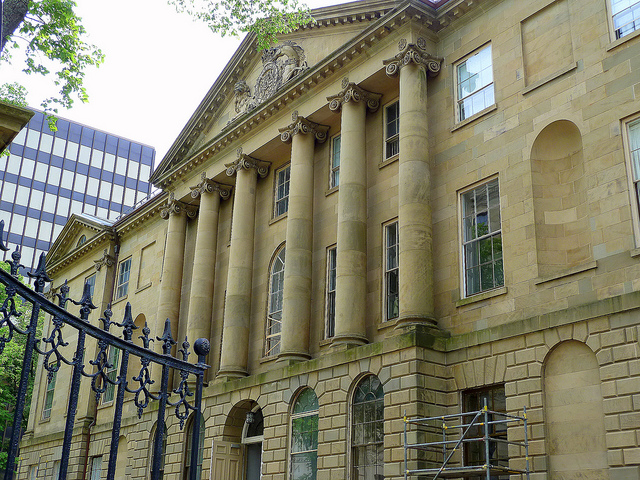During the last provincial election campaign in September 2013, then Liberal Leader Stephen McNeil promised to make Nova Scotia “the most open and transparent province in Canada.” Are we any closer to this desired state a year and a half later? If anything, I would argue we have moved backwards, rather than forwards, towards that goal.
I have been in and around the Legislature for over 30 years, including 19 years as a staff person with the Nova Scotia Government and General Employees Union. As a result, I have spent a fair amount of time at the Nova Scotia Legislature during the past year during the government’s introduction and handling of Bills 30 and 37 to impose essential services legislation on all health-care and community service workers, and of Bill 1 to dictate a new bargaining structure and union representation system under a new provincial health authority.
As disturbing as those three government bills were, I’d like to focus on how the Nova Scotia Legislature has been operating. For ordinary citizens who want to attend and participate in proceedings at this venerable institution, it has been a nightmare.
To illustrate, there are more security guards and police officers than ever before and present in every room in the Legislature. There are more passes required which have to be constantly be changed depending on where you go. All bags have to be checked in with an identification tag. You have to leave a piece of photo ID at the commissionaire’s desk once you are issued a pass. Cell phone use is not permitted anywhere in any of the main meeting rooms.
The situation is even more controlling if you want to participate in the Law Amendments Committee hearings to present your views on a specific piece of government legislation. There is very little advance notice given for these Committee hearings. This is unlike the practice for other Standing Committees of the Legislature, which generally set agendas weeks in advance.
Interested presenters are often given less than 24 hours’ notice of when they to come to make a presentation. When they arrive, they have to get a pass as a presenter and another pass if they want to observe. When they finally get to the Red Chamber where the Committee is meeting, they also often find they have to wait literally hours before being able to speak. When they get to speak, they only have 10 minutes to speak and answer any questions from Committee members if they are speaking as individuals, or 15 minutes to speak and answer any questions if they are representing an organization. And to add insult to injury, no Hansard written record is publicly available and posted unlike almost every other Standing Committee of the Legislature. No photos or video recording is allowed other than for established media outlets, even though this is supposed to be a public hearing process. Worse still, at the Law Amendments Committee hearing on March 30, the Chairperson went out of her way to state that no tweeting of any part of the proceedings is allowed.
Furthermore, there are “Special Procedures” found on the Legislature’s website, which are to be followed when the House is sitting. This includes the broad, sweeping provision of “You are to comply with all security measures in place at the House of Assembly and with any direction from security personnel or Assembly staff.” In other words, any ad-hoc, arbitrary restrictions may be applied without warning at any time.
At the same time, I understand the need to ensure the safety and security of MLAs, staff and members of the public, as the government claims. However, these wide-ranging measures for the Legislature in general and for the Law Amendments Committee in particular, clearly seem more designed to actively discourage and prevent people from coming to the Legislature and meeting with MLAs. In case you needed more examples, remember what happened on this year’s budget day: the day when our government tells us how they will spend our money, and those wanting to be in the gallery or just respond to the budget in the media scrum were escorted out of even waiting in the lobby, apparently because of fire safety rules. What is going on?
In my view, this situation is a long way from being “the most open and transparent province in Canada.” The whole security system at the Legislature needs to be reviewed in order to ensure the broadest public participation possible. This is the people’s house; there is no “us” and “them.” They represent us.
Ian Johnson is the honorary chair of CCPA-NS.
Photo: Tom Flemming/flickr



